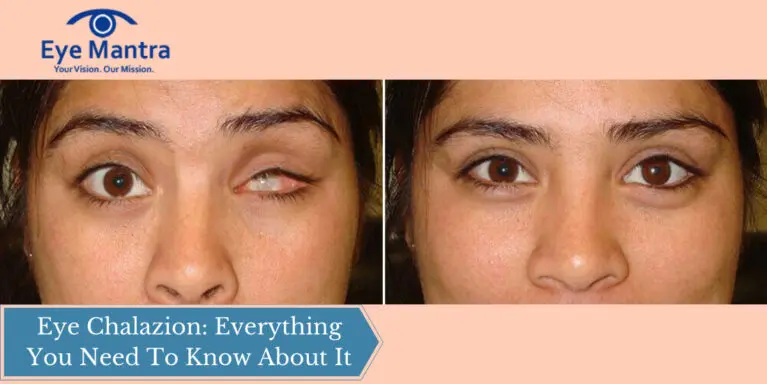
Enucleation is the surgical procedure to remove a damaged or diseased eyeball. When there is a severe eye injury, cancer, or other diseases where it is not possible to save the eye eyeball, then it is removed by the method of “Enucleation”. After surgically removing the eyeball by “Enucleation” the person gets a custom-made prosthetic eye also known as a glass eye.
The prosthetic eye can only provide a natural appearance to the face but it cannot restore vision. They are custom-made to fit the size and color of the other eye and are often unnoticeable.
Contents
Enucleation is the procedure to remove a damaged or diseased eyeball. This surgical procedure only removes the eyeball, the muscles attached to the eyeball for its movement and the tissues that surround the eye are left intact in the bony socket.
After the surgery, the muscles are attached to a marble implant to provide
the movement to the glass eye the patient will get.
Enucleation is necessary when the person has an eye cancer like Choroidal melanoma or retinoblastoma. An uncontrollable infection, end-stage glaucoma, or a serious eye injury can also require removal.
Enucleation is a surgical procedure that is performed under general anesthesia so that the patient does not feel any discomfort during the procedure. Local anesthesia is also used at the end of the surgery so that the patient doesn’t feel any discomfort after waking up.
To maintain the shape, a small plastic conformer is placed behind the eyelids. Sometimes with a single stitch, the eyelids are temporarily sewn together.
The artificial eye is placed several weeks after the surgery till the healing process has taken place and the swelling of the eye has subsided, till then the conformer acts as a placeholder.
Some side effects experienced by the patients are headaches and nausea which can be treated by over-the-counter medications.
A pressure patch is applied after the surgery, which can stay for a day or two and oral medications are given like antibiotics and steroids. It is recommended to see the doctor if you experience any discomfort in the area and for a follow-up on the healing process.
After enucleation surgery it is not possible for the patient to do his normal tasks like driving, working. To recover you should do the following:
Once your surgeon feels that your eye socket is fit for a prosthetic eye he will recommend you an ocularist, who is a professional specializing in custom fitting of artificial eyes.
On the first visit to the ocularist, he will match the prosthetic eye to the natural eye.
When the prosthetic eye is supposed to be inserted, the conformer is removed and the eye is placed behind the eyelid in front of the implant.
The glass eye changes its shape with time thus requires adjustments and refitting every five to seven years
No, prosthetic eyes are not made only of glass but of several compatible materials.
It mostly comprises polymethyl methacrylate. It is lightweight and shatter-resistant thus the perfect material for a glass eye.
Sometimes silicon polymers are also used to make glass eyes.
The movement of the prosthetic eye depends on the type of implant your surgeon chooses when replacing the eye. A peg in the implant can offer more movement to the prosthetic eye and can even make the artificial eye track objects. The pupil size of the eye doesn’t change with light fluctuations.
After enucleation surgery, the patient is told to purchase eyeglasses that are impact-resistant and made of polycarbonate so that it protects the other natural eye from damage.
Even a small eye injury can be a problem for a person with only one naturally functioning eye thus it is not recommended to wear contact lenses after your surgery.
Undergoing an enucleation surgery and wearing a prosthetic eye is emotionally traumatic. It is psychologically difficult to adjust to the prosthetic eye. Counseling and support groups are suggested for the healing of the patient.
Enucleation is a surgical procedure to remove the damaged eyeball and a prosthetic eye is a glass eye to replace the removed eyeball which does not restore the vision. You should visit our eye care centre-Eyemantra Care-in Delhi to consult our ophthalmologists. To book an appointment with our well experienced and trained ophthalmologists contact us on Ph: +91-9711115191
Related Articles:
Convergence Exercises for Strengthening Your Eyes
Tips to Protect Your Eyes from Pollution